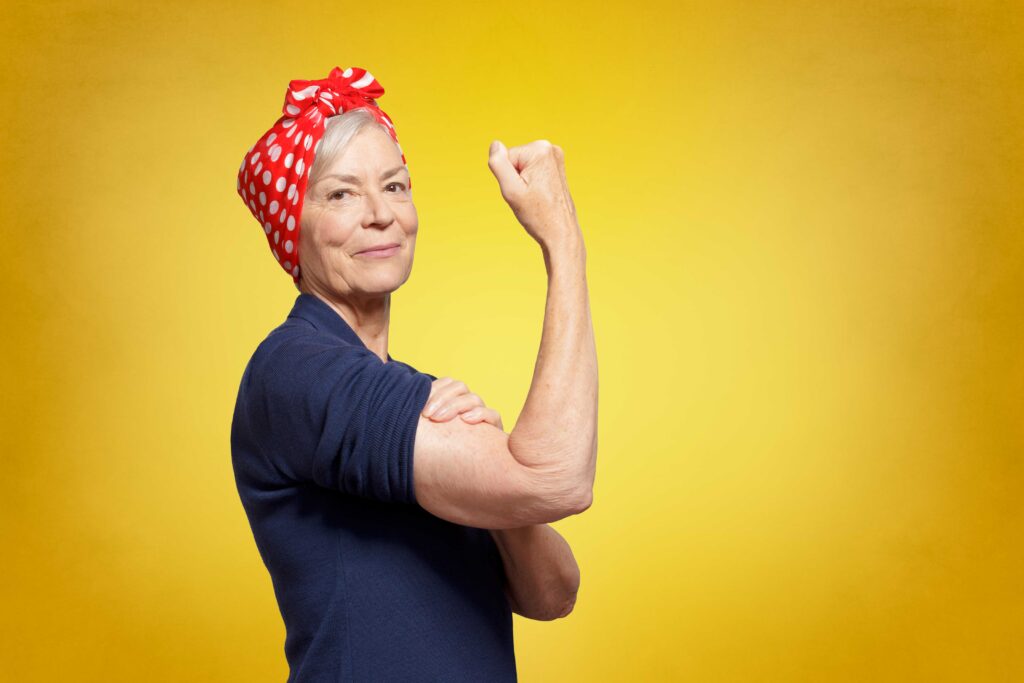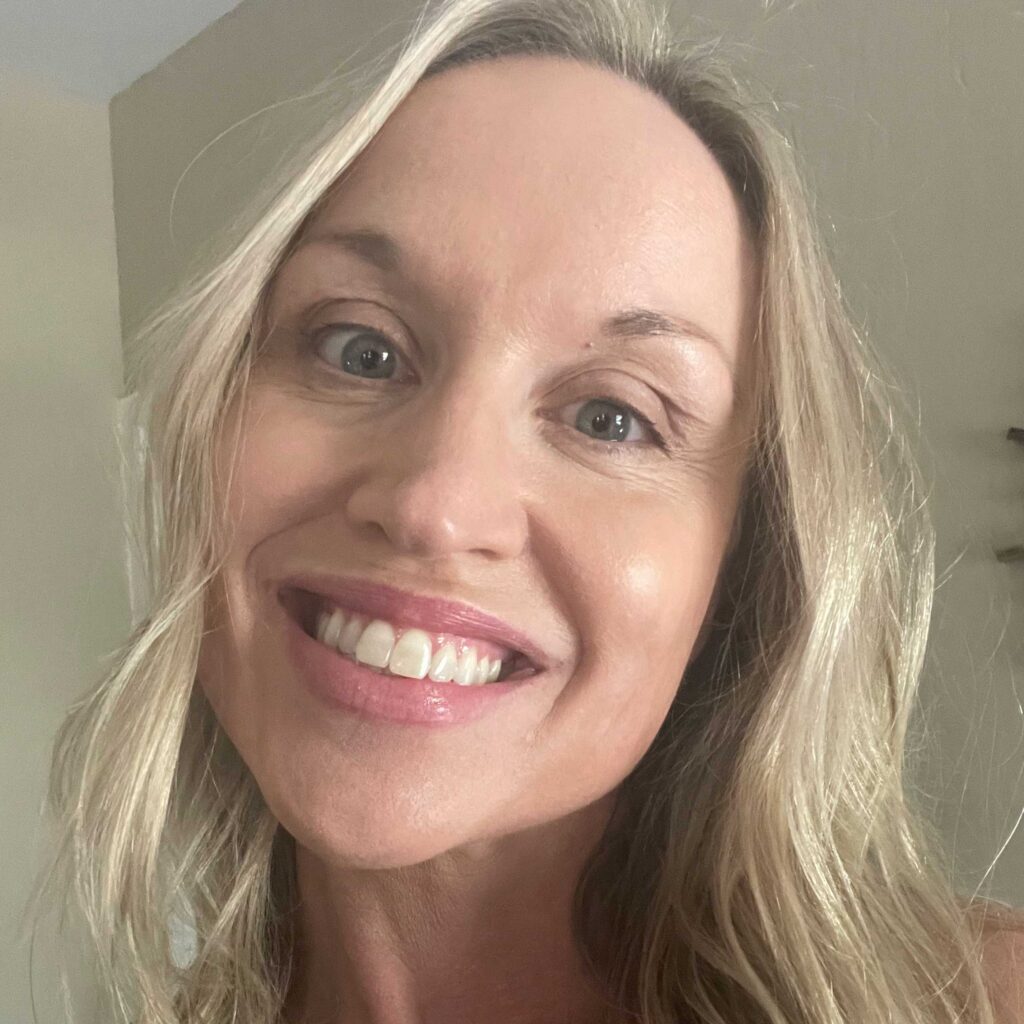My Mother’s Eyes
– Nonfiction by Melissa Mark –

My mother’s eyes were green, large and lovely. Deceptively crystalline in their shine, they hid emotions and decades of repression that often seeped out sideways. Her words followed me after every misstep, sometimes thickly passive-aggressive and other times sharp, spits of criticism on wounding arrows. She lived her life neatly boxed into her restriction of everything pleasurable. My mother was set at three temperatures depending on her company: pleasant and controlled, chilly and restrained, or frothing over with fury. We rarely saw her laugh, even smile.
As a young child I was desperate to please her, conforming to the unwritten rules within my family. I didn’t question authority, I said please and thank you after everything, and I only ate what was deemed acceptable by my mother. This meant no sugar, no fat, no treats, although swigging diet soda at six years old was permitted.
At 14, I marveled at the mystery of how this narrow woman gave birth to me, me being such an emotionally messy creature, so plump and replete with sensitivity. Fed up but emotionally starving, I gained thirty pounds of silent fury in high school, a poetic crash of self-destructive rebellion.
It worked. She left me alone.
The power shift that took place when she wanted me back in early adulthood both thrilled and angered me. A bulk of childhood rejection still lingered in my body, but I also needed my mother. My aching fantasy refused to die, the craving of a warm female to look up to and emulate, a mama to hold me close and tell me how loved and special I was, just for being me.
She was not that person, but she was trying. She smiled and laughed, she emerged from her bedroom to inquire about my life, she even asked me if I needed groceries to take back to my apartment.
I saw her through different eyes than I did in childhood. I saw the way she lied about silly things, held onto them with a grip that never released, even when disproved with logic by my father. I saw the way she lived in denial of anything that scared or shamed her. I suppose it was her method of self-preservation.
But I finally had a mother. I deduced that she learned from her past mistakes, her way of making things up to me was to pretend like they never happened in the first place. I became two people, one who could rest in her mother’s spindly arms and cry about work stress and a broken heart, seeking momentary refuge in the hopeful bond she missed out on for so long.
The other me couldn’t trust. So many years I watched my mother live vicariously through my sister, and soon she tried to do the same with me, now that I was free of the thick thighs that marred her view and the baby belly fat that spilled over my waistband. Rejecting her overtures revved me up when the old anger bubbled up, to glimpse the hurt and confusion in her eyes.
While I finally had a mother, I was the one teaching her things. I was the one learning how to properly communicate, trying to get healthy in my mind and body, buying her books to read and strategies to try to salvage her relationship with my father. In return, she depended on me, doted on me, took me shopping and exclaimed over the small jeans size I’d starved myself into. We talked for hours on the back patio, refilling stemless glasses with the bottomless box of wine.
I was almost secure in our relationship when it happened. Lifelong issues that lay partially healed between us finally scabbed over, unimportant in the context of urgency.
My sister called me that morning as I rushed to drink my coffee before work. “Mom has a bad headache and forgot how to write a Y,” she babbled. “It’s really weird.”
“Mom has anxiety, even if she won’t admit it,” I reassured her. “I’m sure it’s nothing.”
It was glioblastoma, the doctor told us. Mom had to undergo emergency brain surgery to remove the cancerous tumor. As she lay waiting in her hospital bed, I locked tear-filled eyes with hers. It was the last time I saw the mother I knew.
The doctors and nurses were kind enough, but we had to research everything ourselves to get the full, bleak picture. No one told us the prognosis directly, perhaps wanting to spare themselves the agony. Yes, they successfully removed the tumor, but glioblastoma continually grows back and invades the brain, spiderlike and relentless. The average life expectancy of a person diagnosed with glioblastoma is two years. There is no cure, nothing proven to be effective in slowing or preventing the spread of the cancer.
Because our parents finally messily divorced a year prior, it was up to my siblings and me to make decisions for her, choices that didn’t seem like choices at all.
Was it even worth it for her to do chemo and radiation? Should we file for disability? She obviously wasn’t able to go back to work, so how would we pay her bills, her mortgage? Should we start physical therapy? We entered her in clinical trials that buoyed our false hopes, thinking perhaps our mother would be the exception, the one who survived this awful disease.
Who can be sure if it was the recurrence of the tumor, the chemo, or the radiation that chewed so ferociously at her brain, that pulverized and gobbled up her memories? In a mere matter of days, she transformed from a brisk and capable woman to someone I didn’t recognize. Her hair fell out in clumps and left her head naked and mottled, the shock reminding me of my reaction to Luke Skywalker’s removal of his father’s helmet in Return of the Jedi.
With her spirit withering at the same rate as her bruised body, she became an innocent, child-like imposter. In my younger years, she wielded the silent treatment to punish, a very cruel and effective weapon to use on a child. In her illness, her silence was a helpless hunt for words, her formerly sharp brain a betrayal.
My mother’s eyes, once so striking and complicated, were now huge against her bald head and horrifyingly vacant. I was ashamed of my reaction when I looked into them, one of fearful revulsion.
And yet, there were sweet, funny moments. During one frightfully humorous afternoon, Mom crept out the front door while my sister showered and plodded as fast as she could to the corner drugstore. My sister rushed downstairs to the sight of Mom eating a bag of gummy worms on the couch, her newly purchased bright blue eyeshadow and pink frosted lip gloss smeared on her face. In her state, it was a miracle she’d run her errands and returned, pleased with herself and thankfully intact.
When we implored her to smoke marijuana to stimulate her appetite after chemo, she exhaled a puff of smoke and gave us an uncharacteristic peace sign. She ate the meals we made for her, finally allowing herself to ingest carbs and fat, sipping thick vanilla milkshakes and fries dusted with sea salt and dipped in ranch dressing. She became obsessed with costume jewelry, adorning herself with several gaudy beaded necklaces, swinging chandelier earrings, and ten multicolored rings every day. This was a woman who would only wear the tiniest gold studs in her ears, for fear of being tacky.
Our final goodbye was enveloped in stifling summer heat at the end of July. My mother suffered two seizures before being admitted to hospice and didn’t wake up again. My siblings and I gathered around her sleeping body, numbly greeting the extended family and friends that visited her bedside.
She held on, the nurses marveling at her tenacious strength. They declared that she was not letting go quite yet. “She’s a fighter.” After three long days, her heart slowed. Her breathing shallowed. My mind and body continued to operate, sludge-like, barely registering emotion.
When the nurses told us it was time, my siblings and I stayed the night to say our final goodbyes. I sat gingerly on the bed to touch her papery soft skin one last time. I held in what might have been a scream as numerous feelings presented themselves in a gut punch, some fizzy, some heavy, all unlabeled.
A fluttering of lashes revealed the pale green orbs that had been hidden for days and we gasped. Slowly, she moved them to rest on each of us, starting with my sister, then my brother, and finally settling on me. Hers connected deeply with mine, so tender and brimming over with silent sentiments somehow not requiring verbalization before her breath finally stilled.
Peace came for me in that moment. Not only because she was at long last liberated from her pain, but because my mother’s eyes told me everything I’d ever longed for.
Both of us, finally free.
About the Author – Melissa Mark

Melissa struggled to choose between majoring in the writing arts and psychology in college. After practicing therapy for twenty years, she is now exploring her love of writing with renewed vigor. She is passionate about mental health education and awareness, something she hopes is reflected in her pieces. Melissa lives in Flagstaff, Arizona with her husband and two children.
Did you like this story by Melissa Mark? To see more like it, checkout our Nonfiction category.
Like reading print publications? Consider subscribing to the Dreamers Magazine!